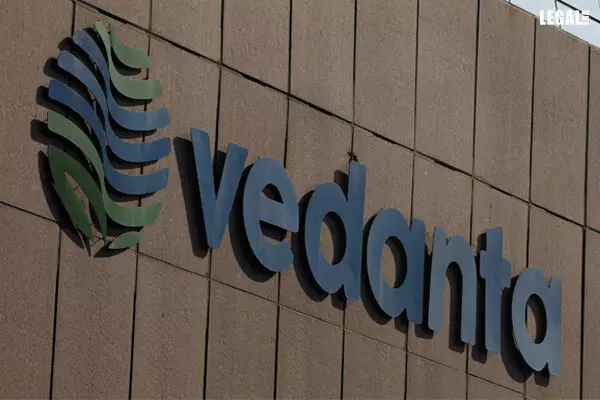- Home
- News
- Articles+
- Aerospace
- AI
- Agriculture
- Alternate Dispute Resolution
- Arbitration & Mediation
- Banking and Finance
- Bankruptcy
- Book Review
- Bribery & Corruption
- Commercial Litigation
- Competition Law
- Conference Reports
- Consumer Products
- Contract
- Corporate Governance
- Corporate Law
- Covid-19
- Cryptocurrency
- Cybersecurity
- Data Protection
- Defence
- Digital Economy
- E-commerce
- Employment Law
- Energy and Natural Resources
- Entertainment and Sports Law
- Environmental Law
- ESG
- FDI
- Food and Beverage
- Gaming
- Health Care
- IBC Diaries
- In Focus
- Inclusion & Diversity
- Insurance Law
- Intellectual Property
- International Law
- IP & Tech Era
- Know the Law
- Labour Laws
- Law & Policy and Regulation
- Litigation
- Litigation Funding
- Manufacturing
- Mergers & Acquisitions
- NFTs
- Privacy
- Private Equity
- Project Finance
- Real Estate
- Risk and Compliance
- Student Corner
- Take On Board
- Tax
- Technology Media and Telecom
- Tributes
- Viewpoint
- Zoom In
- Law Firms
- In-House
- Rankings
- E-Magazine
- Legal Era TV
- Events
- News
- Articles
- Aerospace
- AI
- Agriculture
- Alternate Dispute Resolution
- Arbitration & Mediation
- Banking and Finance
- Bankruptcy
- Book Review
- Bribery & Corruption
- Commercial Litigation
- Competition Law
- Conference Reports
- Consumer Products
- Contract
- Corporate Governance
- Corporate Law
- Covid-19
- Cryptocurrency
- Cybersecurity
- Data Protection
- Defence
- Digital Economy
- E-commerce
- Employment Law
- Energy and Natural Resources
- Entertainment and Sports Law
- Environmental Law
- ESG
- FDI
- Food and Beverage
- Gaming
- Health Care
- IBC Diaries
- In Focus
- Inclusion & Diversity
- Insurance Law
- Intellectual Property
- International Law
- IP & Tech Era
- Know the Law
- Labour Laws
- Law & Policy and Regulation
- Litigation
- Litigation Funding
- Manufacturing
- Mergers & Acquisitions
- NFTs
- Privacy
- Private Equity
- Project Finance
- Real Estate
- Risk and Compliance
- Student Corner
- Take On Board
- Tax
- Technology Media and Telecom
- Tributes
- Viewpoint
- Zoom In
- Law Firms
- In-House
- Rankings
- E-Magazine
- Legal Era TV
- Events
NCLT allows Vedanta to acquire Meenakshi Energy

NCLT allows Vedanta to acquire Meenakshi Energy
Rejects the objections raised by Prudent ARC Ltd and Vizag Minerals & Logistics
The Hyderabad bench of the National Company Law Tribunal (NCLT) has cleared the decks for the Anil Agarwal-owned Vedanta Ltd to acquire the debt-laden power company Meenakshi Energy Ltd.
The tribunal has rejected the objections raised by the competing bidder consortium of Prudent ARC Ltd and Vizag Minerals & Logistics.
The Prudent's consortium had appealed before the tribunal seeking to restrain the Committee of Creditors (CoC) and the Resolution Professional (RP) from proceeding with the challenge process, wherein Vedanta emerged as the preferred resolution applicant.
Vedanta had submitted a bid to buy out Meenakshi Energy for Rs.1,440 crore. While Rs.312 crore was to be paid upfront, the balance of Rs.1,128 crore was to be pumped in the form of secured, unlisted non-convertible debentures to be matured over five years.
In 2019, Meenakshi Energy, which owns a 1,000-megawatt thermal power plant, went under the Corporate Insolvency Resolution Process (CIRP). But due to Covid-19 lockdowns and other reasons, it kept obtaining extensions. Thus, the prospective resolution applicants (with the consent of the CoC) submitted revised offers to meet the needs of the lenders.
Meanwhile, the Prudent's consortium brought to the tribunal's notice that Vedanta revised its resolution plan twice by way of an addendum, which was contrary to the Insolvency and Bankruptcy Code (IBC), 2016 provisions. It argued that the RP could either allow revision/modification of the resolution plans only once or employ a challenge mechanism. Prudent also contested the decision of the CoC to extend the timelines and go against the time boundness of IBC.
The RP apprised NCLT that it was the decision of the CoC (with a majority of 99.18 percent) to undertake the challenge process for value maximization. While Vedanta and Jindal Power submitted their addendum and amended financial proposals, Prudent's consortium insisted on withdrawing the challenge.
During this process, Vedanta revised its bid amount to Rs.1,440 crore, while Jindal revised its bid to Rs.1,344 crore. Since the consortium of Prudent did not submit its revised bid, its previous bid was considered.
The RP insisted that the objective of IBC was the value maximization of the corporate debtor, which was also time and again upheld by the Supreme Court.
The bench comprising Justice Telaprolu Rajani (judicial member) and Charan Singh (technical member) upheld the 'wisdom of the CoC' and stated, "The law is well settled that the maximization of the value of the assets of the corporate debtor has to be given prime importance."
It further held that the CoC had the power to allow modifications more than once in the resolution bids. The bench stated that time boundness and value maximization were two philosophies that ran through the IBC.
NCLT ruled, "When CoC itself decides to go beyond the timelines, for valid reasons, the time boundness of IBC cannot be pitted against them to say that the maximization of the value of the assets cannot be done due to the obligation to stick to the timelines."
While senior counsel S Niranjan Reddy appeared for the Prudent consortium, senior counsel S Ravi represented the RP, and senior counsel Vivek Reddy appeared for the CoC.


